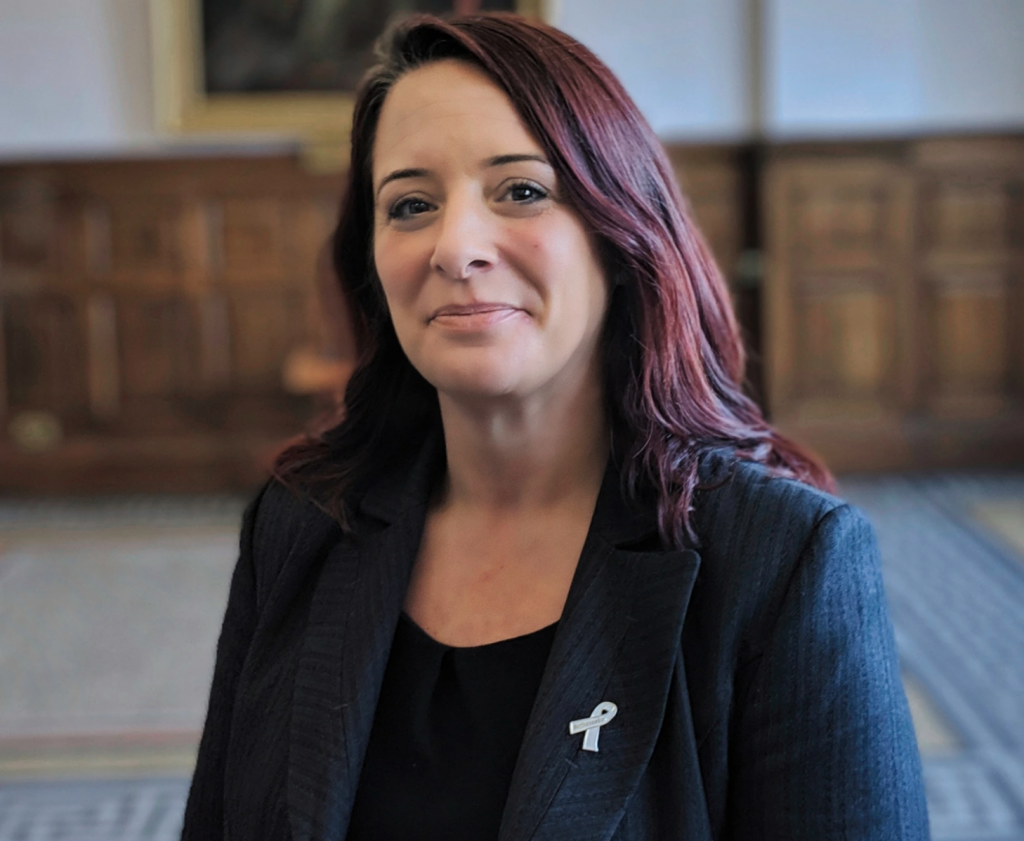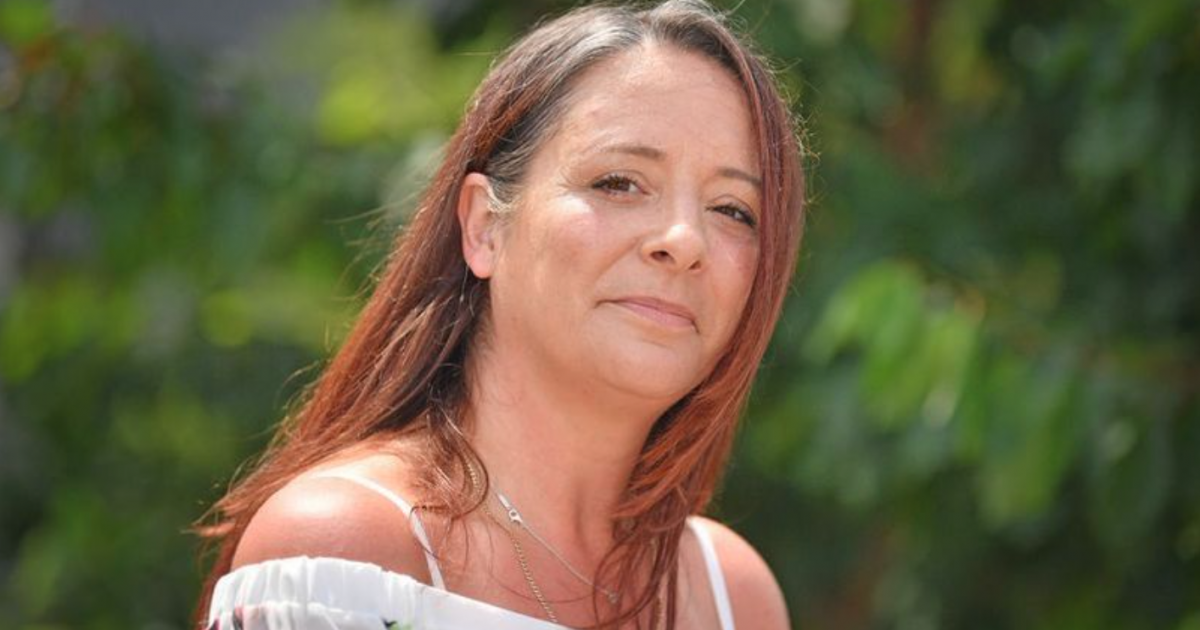The Dangers of Smoking
- Alison Todd, 47, developed a cough late in 2020, chalking it up to a symptom of “long COVID,” then six months later, found out it was stage 4 lung cancer.
- By that time, doctors found over 20 tumors in Alison’s lungs. The mother-of-four and local community figure bravely set out to raise awareness of the dangers of smoking by telling her story.
- With lung cancer, early detection is essential. The sooner doctors catch this cancer, the more likely that treatment will be successful. Early-stage lung cancers that are removed with surgery may even be curable. But all too often, lung cancer isn't detected until it has already spread and it's more difficult to treat.
Needless to say, the shocking health news made the wife and mother fall apart. The local councillor from Surrey, England was a key figure in her community, and as many cancer patients can empathize, this simply was not a part of her life plan.
Read More Unfortunately, Alison had been a smoker since age 12, and even tried to stop when she helped run stop-smoking campaigns, but she just couldn’t kick the habit.
Unfortunately, Alison had been a smoker since age 12, and even tried to stop when she helped run stop-smoking campaigns, but she just couldn’t kick the habit.“It was a habit I couldn’t break,” she admitted in an earlier interview while sharing her health news. “But the day I got the diagnosis, I gave up very easily.”
Lung Cancer in Smokers vs. Non-Smokers
Doctors first found a 5.5 centimeter tumor in her lung back in April, then discovered there were 10 in one lung and over 10 in the other.
“It’s the hardest thing you can ever go through. It was such a shock. My whole world just fell apart,” she said.
Related: Handling Fear When You Get the Diagnosis
Tragically, Alison just lost her battle with the disease. Spelthorne Borough Council and Surrey County Council lowered their flags in honor of her service to the community.
“Alison, 47, was a dedicated County and Borough Councillor for several years. She was a staunch advocate for the residents of Sunbury and Ashford Common and her death will come as a bitter blow to her community,” the “heartfelt” joint statement read.
We express our condolences to Alison’s family and her community.
Alison didn’t have to share her story, but she did it to help raise awareness about the dangers of smoking to help others. Admitting that you are a smoker after leading stop-smoking campaigns must have been tough, but the fact that she rose above any potential judgement to help advocate for this disease is highly admirable.
Lung Cancer Screening is Crucial
With lung cancer, early detection is essential. The sooner doctors catch this cancer, the more likely that treatment will be successful. Early-stage lung cancers that are removed with surgery may even be curable. But all too often, lung cancer isn't detected until it has already spread and it's more difficult to treat.
"In about 70 to 80% of patients who are diagnosed with lung cancer, unfortunately the cancer has spread outside of the lung and is not suitable for surgery," Dr. Patrick Forde, thoracic oncologist at Johns Hopkins Medicine, tells SurvivorNet.
Former & Current Heavy Smokers Should Get Lung Cancer Screenings Using CT Scan, Says Leading Expert
One very effective way to find lung cancers early is with a low-dose computed tomography (CT) scan. This test uses a very small amount of radiation to create highly detailed pictures of your lungs. It can reveal cancer long before your very first symptom appears.
A study published in the February 2020 issue of The New England Journal of Medicine found that former and current longtime smokers ages 50 to 74 who had low-dose CT scans were less likely to die from lung cancer (24% lower risk in men and 33% lower risk in women) than those who didn't have this test.
Lung Cancer and Smoking
"Did you smoke?" is a common, and not always easy question, which people are asked when they get lung cancer. It may not be a nice question, but it is increasingly important for deciding your treatment.
Smoking is, of course, the primary cause of lung cancer, but non-smokers can, and do, develop this disease.
“Researchers have made progress in understanding the differences between lung cancer in smokers versus non-smokers,” says Dr. Ronald Natale, a medical oncologist at Cedars-Sinai Medical Center, to SurvivorNet, “and they're developing targeted treatments that will be able to address the genetic drivers of lung cancer in non-smokers.”
Targeted cancer therapy attacks very specific molecules within a tumor that are involved in its growth and spread:
- Pembrolizumab (Keytruda) is approved for treating lung cancers that express PD-L1 or Programmed death-ligand 1. This therapy blocks a protein called PD-L1, which hides and protects the tumor from the immune system.
- Nivolumab (Opdivo) is approved in combination with Ipilimumab (Yervoy) for the first-line treatment of patients with metastatic non-small cell lung cancer whose tumors express PD-L1 (≥1%) with no EGFR or ALK genomic tumor aberrations.
“We now are beginning to analyze the results of a clinical trial where PD-L1 inhibitor, KEYTRUDA, was combined with immunotherapy,” Dr. Natale explains, “and the results appear to be much better than PD-L1 inhibitor alone, the KEYTRUDA alone, or than chemotherapy alone.”
“We have a lot more research to do, a lot more discoveries to make before we will be abandoning chemotherapy in the majority of patients with lung cancer, namely the 85% who’ve been lifelong cigarette smokers,” Dr. Natale adds.
Although there is more and more hope these days with lung cancer treatment and more awareness with early detection, the best thing you can do for yourself is to stop smoking to reduce your risk of ever developing this aggressive disease.
Contributing by SurvivorNet staff.
Learn more about SurvivorNet's rigorous medical review process.


